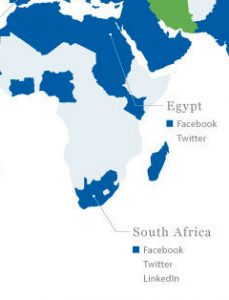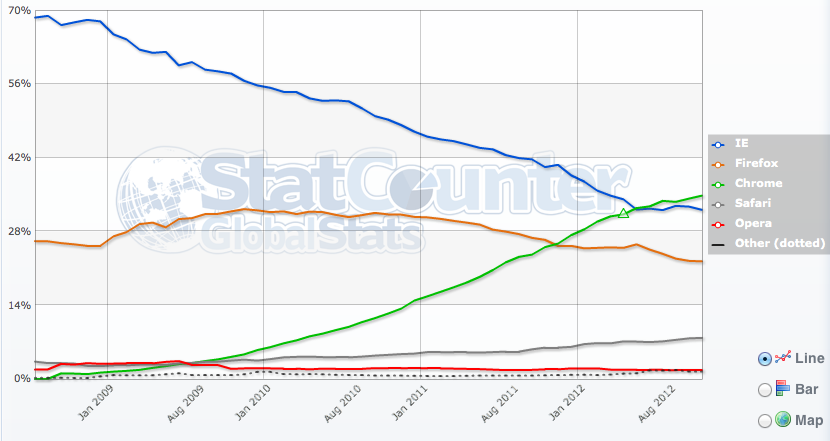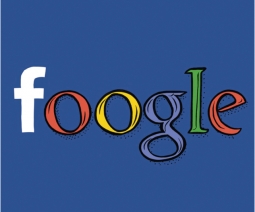That Facebook is in the top three of most visited websites in the U.S., and the most visited social media in North America does come as a surprise. But that Facebook tops the list of most visited in Africa (over 17 million users) is not as obvious. This fact, together with that the continent now has more than 600 million mobile phone users opens up for major opportunities for businesses using social media. Africa has had the highest rise of mobile Internet penetration in recent years and by 2016 it is estimated that there will be 1 billion phones in Africa*. Further sign of the Facebook’s significance is that it has already been launched in 3 of the major languages – Swahili, Hausa and Zulu.
Except for the extensive growth and future outcomes, one interesting thing with Internet usage in Africa is that it is currently used different as in rest of the developed world. In Africa Internet is primarily used for using social media and be entertained, whereas in the developed world Internet is used to find things, check e-mail, and do social media. In other words the increased usage of Internet in Africa is highly connected to use of social medias, namely Facebook. Moreover if knowledge sharing could be integrated into social media, not only using it for entertainment, could be the beginning of something big.
* Map shows social media area of usage in Africa (grey fields = no data)
*http://www.screenafrica.com/page/news/africa/1402055-The-rise-of-social-media-in-Africa#.UKyuQqVnoTV







 The idea of making the search social is to get relevant information quickly and easily find out what your friends think about it. If I for example type in “Activities in Vancouver”, my friend’s photo album “Weekend in Tofino”, another friend’s movie “Skiing in Whistler”, and how many likes Vancouver Art Gallery have, would pop up next to the relevant web pages.
The idea of making the search social is to get relevant information quickly and easily find out what your friends think about it. If I for example type in “Activities in Vancouver”, my friend’s photo album “Weekend in Tofino”, another friend’s movie “Skiing in Whistler”, and how many likes Vancouver Art Gallery have, would pop up next to the relevant web pages.